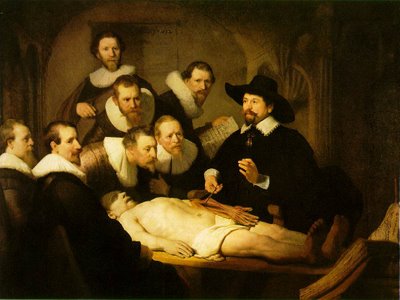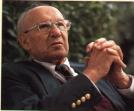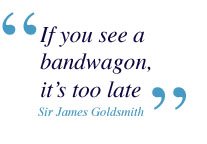This may turn out to be the best lecture I've never attended. I had to leave before Dr Itiel E. Dror gave his talk, at the e-learning forum, but we had a chat in the break and he left me his excellent paper.
Old science and new-age sociology He agreed that learning theory, for most educationalists and training professionals, was stuck in tail end, behaviourist theory that goes back 50 years or more. These are largely 'fossil' theories that have been hanging around because the professions rarely bother to relate practice back to current research. These fossils include the over-prescriptive, faddish and non-empirical theories of:
Bloom
Gagne
Mager
Kolb
Honey and Mumford
Kirkpatrick
Vygotsky; learning's LysenkoEven more worrying has been the sudden entry of non-empirical sociology, which claims that all learning is a social construct. This manifests itself in the truly awful Vygotsky cult (oft quoted, seldom read) with his pseudo-Marxist, unscientific theories, loved by instructors as it puts them at the centre of the learning universe. He is learning’s Lysenko (they were born within two years of each other). It's as if we are stuck with a combination of old, discredited science and bogus new-age sociology.
Experimental psychology has many of the answers It is a myth that there's no stable, scientific learning theory. We need only turn to the many pieces of solid evidence from experimental psychology to see how the three core processes in learning can be improved: #
1. ACQUISITION
2. MEMORY
3. APPLICATION
1. ACQUISITION
It is clear that cognitive overload is the greatest consequence of not understanding how knowledge and skills are acquired. The failure to understand how we prioritise and select information, and a lack of detailed knowledge on chunking, top-down processing and modularity, lead to demeaning, over-demanding or dull learning experiences. Expectation, motivation and engagement all have optimal techniques, which can be used to increase the efficiency of learning. Cognitive overload is at best a waste of resources, at worst a destructive force in learning. Yet far too much training ignores the fact that less is more.
2. MEMORY
We need to understand how to remember in order to retrieve, and so we need to understand how the different memory stores/structures/systems work. This is an area rich in solid research, from Ebbinghaus onwards. Working Memory is different from Long-Term Memory. It is vital we understand how these work, along with the two different types of LTM; semantic and episodic memory. Then there's incidental versus intentional learning, inferential reconstruction and context sensitive retrieval. These are pretty solid pieces of science that can be used to inform the design of learning experiences. Yet how many teachers and trainers know what these terms mean? If we were engineers we'd know the basic laws of physics, yet in the learning game we can sail on, oblivious to how memory actually works.
3. APPLICATION
Appropriate representations can be recalled but we must be aware of their limited scope. This is a trade-off between efficiency and flexibility. This 'transfer' problem is fascinating. How do we recall learnt knowledge and skills and apply them efficiently? The whole area of practice and work-related activity swings into action. Practice makes perfect, yet in education this is reduced to cramming, and in training, with its fixation on single, episode 'fixed duration courses’, ignoring actual reinforcement and application on the job, is largely ignored.
Itiel has a sensible and measured run though of some basic ideas around how we acquire, store, recall and apply knowledge and skills. His appeal for the practical application of experimental psychology to learning is badly needed.










